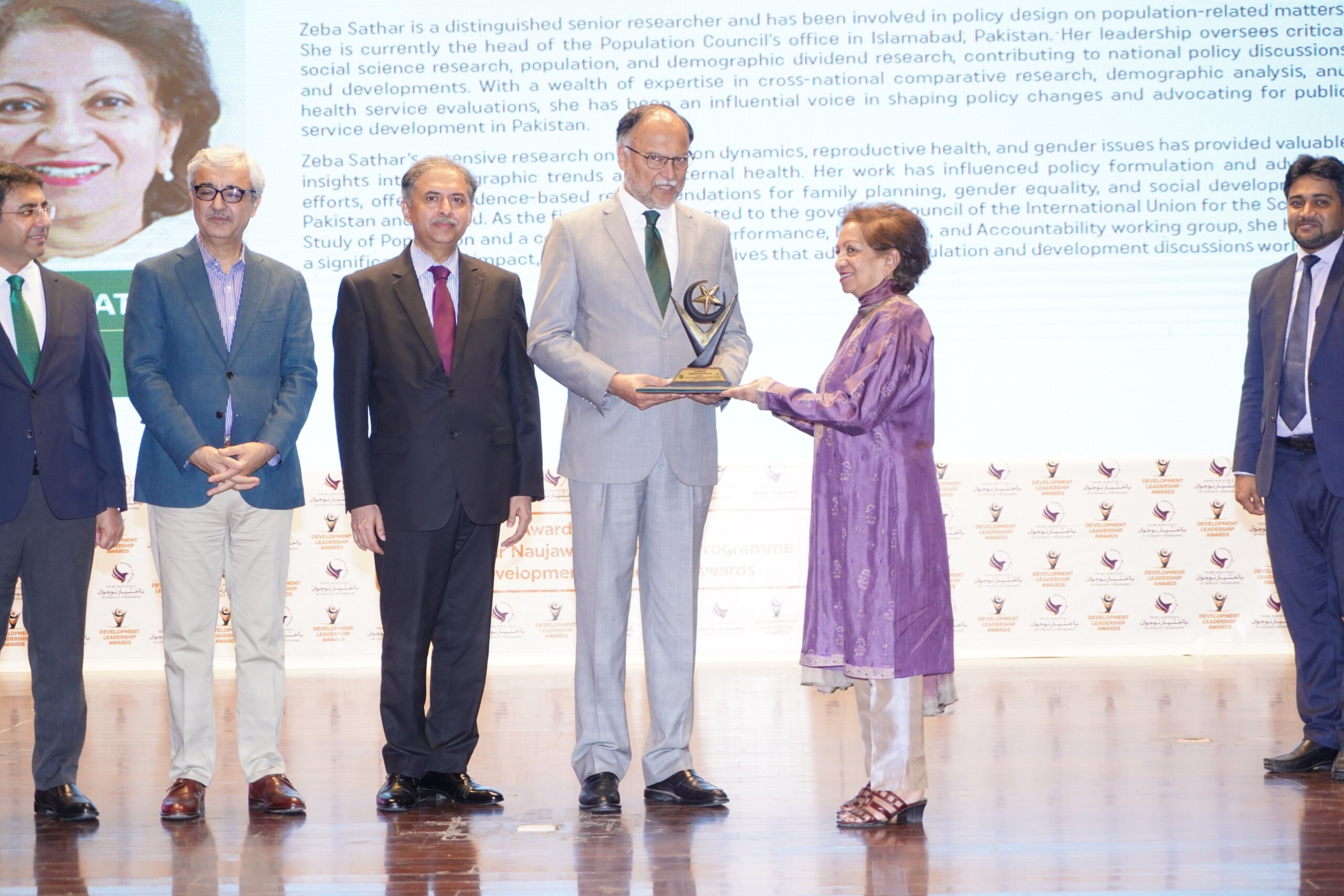
Pakistan’s Ministry of Planning Development and Special Initiatives celebrated its 75th anniversary by recognizing individuals and organizations for distinguished and exceptional achievements in the economic development of Pakistan as policy, thought, or society leaders. We are proud to announce that Zeba Sathar is awarded a Development Leadership Award, as a ‘High Achiever’ under the ‘Policy Leader’ category.
In honor of this occasion, we interview Dr. Sathar to learn more about her work and career thus far.
How did you decide to go into social science, demography, and public service as a profession?
I trained as a demographer and started with a career in research at the Pakistan Insitute of Development Economics. It was after joining the Population Council in 1994 that I discovered the importance of public service of ensuring that research went beyond publications and translated into policy impact.
What excites you about your work?
The exciting part is being able to apply research ideas and seeing them translated into policy changes or programmatic inputs. I also like working with the Population Council Pakistan team where we share the same mission and care about bringing about a change.
Can you describe some of the defining moments of your career? What are your hopes for the future generation in Pakistan?
Being associated with some important turning points in the Pakistan’s policy development such as the Council of Common Interests task force that crafted today’s population policy plans was important. Being able to invite Dr. John Bongaarts as keynote speaker for a landmark event in December 2018 at the Supreme Court of Pakistan was a major high point. And completing three rounds of a post abortion study (1, 2) that has estimated the levels of unwanted pregnancies and ensuing complications in 2002, 2012 and in 2023 was a major sense of continuity in raising an important public health challenge.
Are there any publications you are particularly proud of?
In the 1990s and early 2000s I co-authored The onset of fertility transition in Pakistan, and Obstacles to Contraceptive Use in Pakistan: A Study in Punjab with John Casterline, and with Dr. Cynthia Lloyd, I co-authored publications on gender and schooling in Pakistan such as The effect of gender differences in primary school access, type, and quality on the decision to enroll in rural Pakistan, and Schooling opportunities for girls as a stimulus for fertility change in rural Pakistan. Dr. Shireen Jejeebhoy and I co-authored an article for Population and Development Review examining the lives of South Asian women and their autonomy. I’m also proud of the book I co-edited with Jim Phillips entitled Fertility Transition in South Asia.
More recently, I’m proud of the publications I produced with emeritus Council colleagues, Anrudh Jain on the unmet need for contraception in Pakistan, examining maternal mortality risks by monitoring health facility level information, and with John Bongaarts on the changing demographic profile of Pakistan.
You have a long and storied career at the Population Council. What makes working at the Population Council different from other organizations?
The Population Council has a strong mission and mandate in creating a change in people’s lives, for the long haul. Many other organizations focus on project-based results and have a much shorter perspective. Furthermore, we really inculcate teamwork and team spirit so the sharing of success with others is indeed very important.
What does winning the Development Leadership Award from the Pakistan Ministry of Planning Development and Special Initiatives mean to you?
It is a good feeling for the government to recognize the importance of the population sector and the Population Council as an international research organization’s lead in contributing to national development. It is different from other awards that are given within the same community of scholars.
What advice do you have for young scholars who want to make a difference?
Never compromise on the quality of research that you do. And go beyond the publications to extract critical findings and messages from the research that can be easily understood and useful in impacting the lives of those more marginalized.
